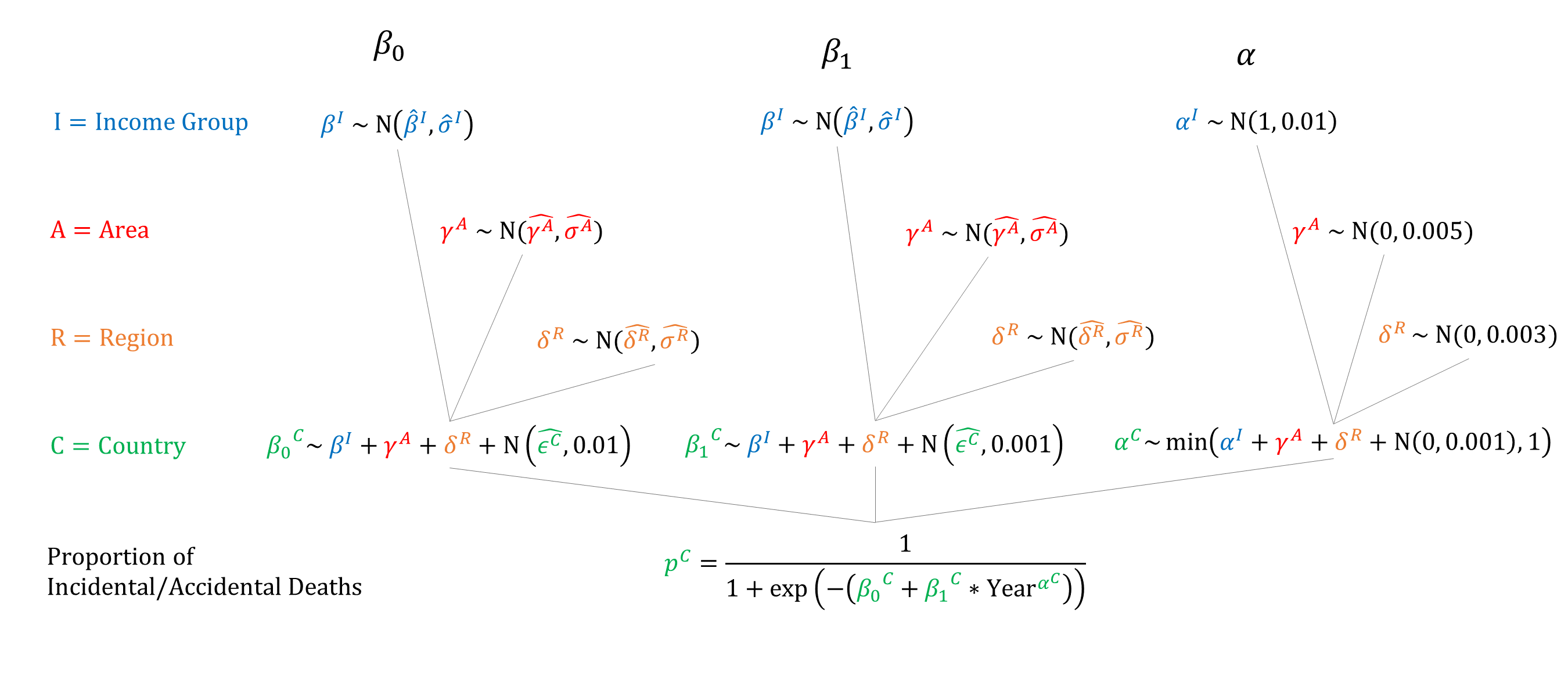Proportion of Deaths due to Injury
Model Inputs \(\rightarrow\) Demographic Data \(\rightarrow\) Proportion of Deaths due to Injury
Overview
The World Health Organization (WHO) defines a maternal death as “the death of a woman while pregnant or within 42 days of termination of pregnancy, irrespective of the duration and site of the pregnancy, from any cause related to or aggravated by the pregnancy or its management but not from accidental or incidental causes”.[1]
In addition to deaths from direct obstetric causes explicitly included in the model, we therefore also include maternal deaths from indirect causes when calculating maternal indicators. To estimate the risk of death from these indirect causes we use background mortality rates for women ages 15-49 from the WHO lifetables, and remove a proportion of deaths due to accidental/incidental causes (e.g. traffic accidents, other injuries, etc).
Data
We use estimates of cause of death from the Global Burden of Disease (GBD) 2019[2] to model the proportion of deaths due to these causes. We obtained estimates of cause of death among women ages 15-49 for 197 countries included in the model from 1990 to 2019. Based on the mean GBD estimates, we calculated the proportion of all deaths due to injuries (code C. Injuries).
Parameters
We used a hierarchical logistic regression model to estimate how the proportion of deaths due to injuries changes over time.

Priors
Model Implementation
Background mortality deaths (i.e. deaths from the lifetable) that occur in the model during pregnancy will be classified as ‘maternal’ deaths if they are not due to incidental/accidental causes, as controlled by the estimated proportions over time.
References
- World Health Organization. Maternal mortality ratio (per 100 000 live births). Available at https://www.who.int/healthinfo/statistics/indmaternalmortality/en/.
- Global Burden of Disease Study 2019 (GBD 2019) Results. Seattle, United States: Institute for Health Metrics and Evaluation (IHME), 2020. Available from https://vizhub.healthdata.org/gbd-results/.
GMatH (Global Maternal Health) Model - Last updated: 28 November 2022
© Copyright 2020-2022 Zachary J. Ward
zward@hsph.harvard.edu